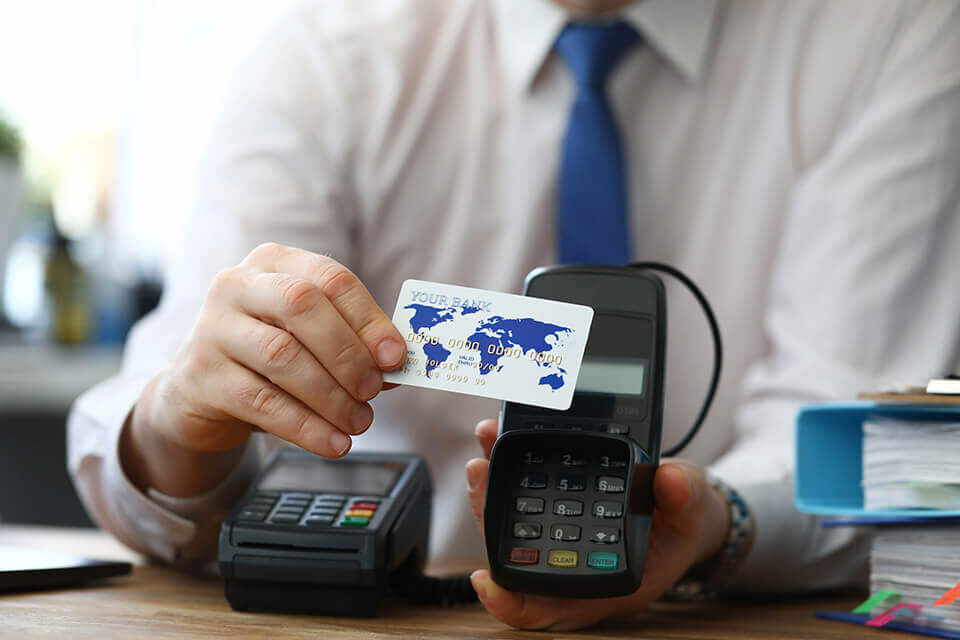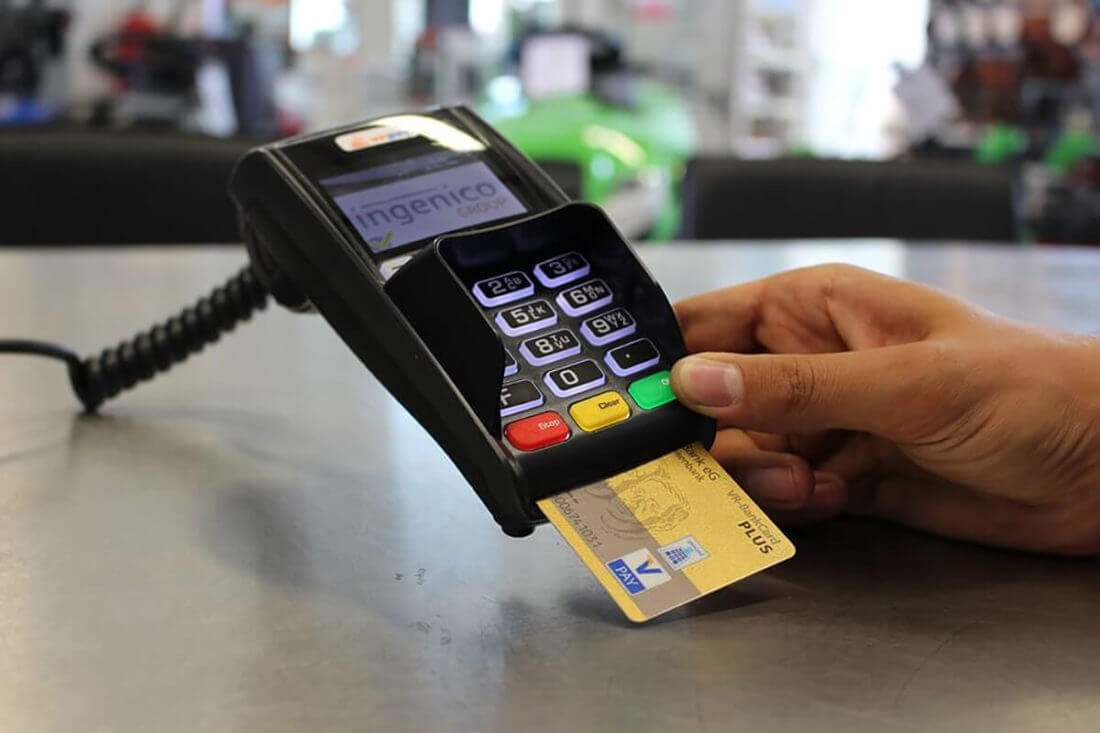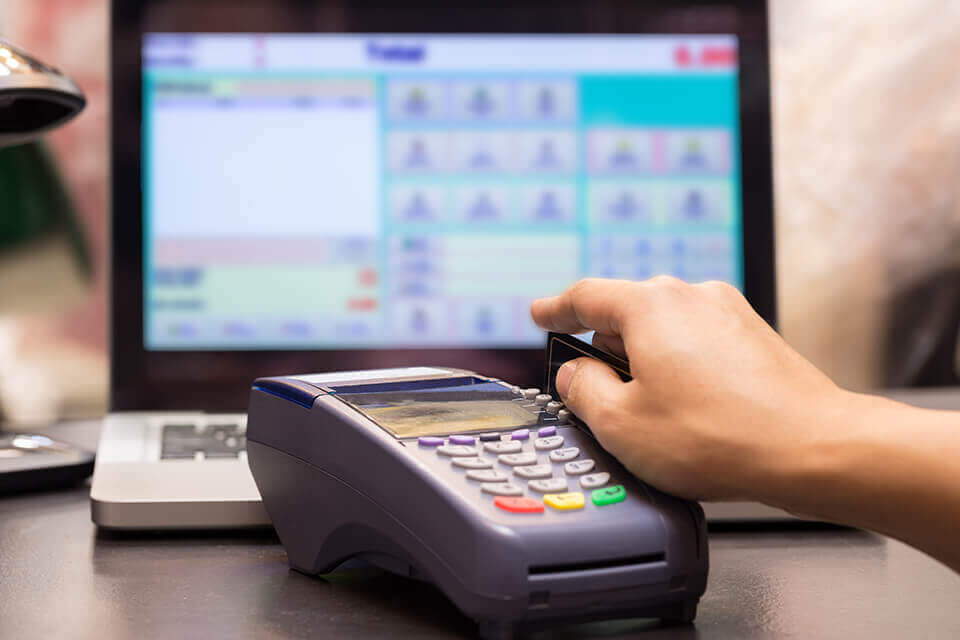Are you a business owner who is wondering what is merchant services and how they can help your venture grow? First things first, almost 70% of Americans have at least one credit card they use on an everyday level besides other methods of payment that don’t include cash. In other words, if you want your company to flourish and your customer pool to expand, you should consider introducing the option of cashless payments to your customers. And that’s exactly what merchant services will do for you, among other things.
To help you understand this complex and wide concept, we’ve dug deep into the meaning of merchant services in order to explain how they work, what kind of providers are there, what kind of tech you should get, how much you should pay, and finally, how to find the services that will suit your business perfectly.
Let’s Begin at the Beginning – What Is a Merchant?
A merchant is an expression used by payment processors when they are referring to their clients. Those clients are small or big businesses that take credit card payments in person, online, or via phone. Service providers help companies run smoothly by offering them various products and systems. Providers can also provide you with financial reporting, customer management, and inventory systems.

What Are and What Do Merchant Services Do?
Simply put, merchant services (MS) refer to the ability to accept credit card payments in your company. Even though this is a broad term that people use when describing a wide range of financial services, it mostly focuses on accepting plastic and other cashless payment methods.
This loose definition makes it difficult to understand exactly how MS works, and as an entrepreneur, you should know all the details. Therefore, you should understand the processes that happen behind the scene – tools and tech involved, and just how much you are expected to pay for these services.
How the Services Work
When you get a good grasp of what MS are, it is time to figure out how they work. The answer will depend on numerous factors like how you are accepting payments or what kind of cards you are accepting, and what providers you are collaborating with.
However, there is a basic process to it, and it starts when a client hands you their plastic and ends when the transaction gets approved. Since the term MS doesn’t apply to paper money payments, most transactions usually involve a processing terminal and tech that will run payments through it. When you swipe the plastic, the invisible process boils down to:
- After swiping, information is entered into the terminal
- The payment processor transmits information and checks it with the client’s bank before accepting or denying it.
- If the transactions are approved, you can take them through your terminal, and the process is complete.
- When the purchase is approved, the processor gets its fee and deposits the rest of the funds into your account.
This is a complicated procedure that happens within a few seconds. It is one of the essential parts of MS because, without it, companies would not be able to obtain money via credit card payments.

What Are Credit Card Payment Processing Companies?
Talking about MS wouldn’t be possible without mentioning service providers. Those are credit card processing companies that provide financial services to businesses. Basically, if you own a small company looking to accept debit and credit card payments, you will need to hire a processing company that will provide you with all the right tools, hardware and software, that will facilitate behind-the-scenes procedures.
What Is the Difference Between Account and Payment Service Providers
Providers are divided into two categories – merchant account and payment providers. The first ones are more traditional, and as the name suggests, they provide a company with a merchant account – the account in the bank that is required if the business wants to accept plastic. Providers will help you set up and make everything functional.
With service providers, accounts are not included. Instead, providers aggregate all the funds from various clients, put them into a single account, and then distribute them to each company individually.
What Merchant Service Equipment Will You Get
When you find providers, you will also get the technology and all the info your company needs to optimize operations. Your providers will give you tools such as POS systems, mobile terminals, or payment gateways. All of them you can use to accept plastic.

Are There Additional Services You Can Get?
Processors will more likely than not offer you additional aids. Take a good hard look at your company before you decide to accept them or decline them. At the end of the day, what’s important is that your company benefits from the services you are using.
Merchant Cash Advances
First things first, to get cash advance, you need MS. This being said, a cash advance is not technically a loan, it is a good way to get money with no need for collateral, even if you don’t have a great credit score. Nowadays, this term is used to describe many financing options for small businesses, and it is characterized by short terms and small regular payments.
Marketing Tools
In the digital age where marketing can make or break your company, it is comforting to know those trustworthy processors can offer you some useful tools. From utilizing the best SEO strategies to navigating the competitive online marketplace. With the right assistance and tools, your company’s online presence will be noticeable, which will eventually lead to an increase in profit.
Gift Card Programs
Gift Cards are sold to clients, and they can be given to family and friends to be redeemed in the store. These vouchers are swiped through POS systems and traditional terminals. The electronic gift cards or EGC programs allow companies to launch a standard gift system on multiple locations. EGC is issued for any dollar amount, and they are designed purposely for retailers offering plenty of saving features.

There Are Several Types of Processors
There is not only one type of processor that can help you grow your enterprise. Depending on their relationship with Visa and MasterCard networks, processors are divided into three categories.
Direct Processors
When people talk about direct processors, they refer to companies that have direct access to Visa and MasterCard networks. Simply put, these companies are either banks or their divisions. There are not many of these companies in the US, which means that most account providers are resellers or subsidiaries of these enormous corporations.
Independent Sales Processors or ISOs
Independent sales organizations are enterprises that are not officially a part of card membership associations like Visa or MasterCard, but they are partners with acquiring banks. The acquiring bank is the financial organization that serves as an intermediary between companies that accept credit and debit cards and associations like Visa and AmEx. ISO usually has their own set of tech, sales agents, and basically, they act as one-stop-shop for all processing things you need. They can provide you with everything your company needs to reach success.
Payment Facilitators
Payment facilitators basically allow companies to accept cash using their infrastructure. They help small or micro companies who don’t have enough resources and time to apply for merchant accounts. Facilitators remove all the friction in the application process by adapting to the needs of the company they serve.

What Is the Cost of Merchant Service
Let’s be honest, nobody likes to overpay for anything, but nothing comes for free. To avoid giving too much money without realizing it, get to know all the factors that directly affect the good rates. Those are fees, rates, average ticket, processor’s markup, the industry your business is in, and volume. And remember, there are a few processing rate plans that can significantly affect your overall expenses. Furthermore, some pricing models are more cost-effective for some enterprises than others, and knowing which one to choose will notably affect your finances.
Who Should Use Flat Rate Model
The simplest pricing model is flat-rate. Most providers that offer this type of pricing usually offer flat-rate fees for all card-present transactions, and other card-not-present payments. This model works great for small companies because owners won’t have to pay extra fees. However, these rates are frequently higher than those you would pay when using an interchange-plus plan. This is why flat-rate is not a great model for companies whose monthly volume surpasses $10,000.
Who Can Benefit From Interchange Plus
Interchange plus pricing is the best pricing method for medium-sized companies. With this model, your transaction fee also includes a fixed markup for your provider. This is a very transparent pricing method because you can see precisely how much of your money the provider is taking out of the transaction. However, there are some annual and monthly fees entrepreneurs will pay, and that’s why this model is not the smart choice for very small companies.

What Are High-Risk Businesses
Finding a trustworthy service provider is challenging on its own. If you add the fact that your company may be considered high risk by the processing industry, things can get even trickier.
What does it mean when your company is considered high risk? Simply put, some businesses are considered to be riskier by processors. When that happens, your enterprise is put in a more dangerous category, which means your accounts will be limited and pricier than low-risk ones.
Some companies, like online gambling or vape shops, are inherently considered high-risk, but your business can be put in that category if you have an abnormally high chargeback rate or your financial score isn’t so great.
Some providers will collaborate with your company and provide you with higher rates, but also with a stable account that will allow you to accept plastic without a problem.

How to Find Reliable Service Providers
When you consider all the different sides of processing, looking for a reliable provider might seem like a difficult task. There are a lot of aspects to think about, and at the end of the day, you should pick the company that suits your business’s needs.
While looking and researching, make a list of all the things you need in the processor, compare companies, and take into consideration:
- Payment options and types – is your company accepting only online transactions, or are you taking in-person cash only? Are you opting for only accepting credit and debit cards? Or will you be accepting contactless money transactions as well?
- Types of software and hardware you require – Are you in need of a payment gateway? Would you require a full POS system or terminal? Or any other software?
- Choosing the best pricing structure – is there a structure you prefer? Put your finances on the paper and see what kind of fees you will be able to pay.
Knowing the answer to all of these questions will give you a better sense of what your company needs from processing. Therefore you will know what to look for in a provider.
Don’t Forget to Look for Good Customer Support
The main quality every customer support should have is responsiveness. Also, agents on the phone should have a working knowledge of products, software, and hardware in case you need assistance. Some providers go above and beyond to offer clients the best support, no matter the form. Look for a company that can assist you via chat as well as calls.

What Is Merchant Services Impact on Small Business
The latest statistics show that around 40% of Americans are likely to use a credit card for a purchase. This shows that paper money and checks are becoming less popular with customers.
Additionally, there are around 1.06 billion credit cards in use in the US, so why not take advantage of that fact? With a merchant account, your company will be able to obtain money transactions in numerous ways. Those companies that prioritize client experience often realize that, by eliminating friction in the buying process, they can gain new customers and improve cash flow. Research published by the Community Merchants USA showed that 83% of small businesses that opted for accepting plastic saw an increase in sales.
An additional benefit is the improvement of money management. Instead of counting paper money manually, electronic transactions will be neatly organized and kept enabling better cash flow management.





